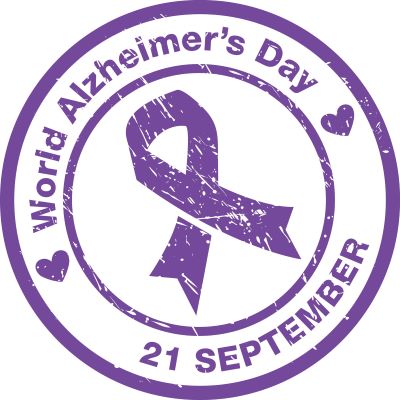World Alzheimer’s Day: Giving up on research is not an option
Posted on: 21 September 2021
-
 Professor Iracema is Associate Professor of Geriatric Psychiatry at the School of Medicine and the Global Brain Health Institute (GBHI) at Trinity. Here she speaks of the critical importance of clinical trials for Alzheimer’s disease and other types of dementia and how giving up is not an option when it comes to research.
Professor Iracema is Associate Professor of Geriatric Psychiatry at the School of Medicine and the Global Brain Health Institute (GBHI) at Trinity. Here she speaks of the critical importance of clinical trials for Alzheimer’s disease and other types of dementia and how giving up is not an option when it comes to research.
This is an extract from a blog written for World Alzheimer’s Day (21st September 2021) for the Health Research Board (HRB).
The current treatments and interventions for this complex array of brain conditions [Alzheimer’s disease and other types of dementia] is still very limited. While we talk a lot about ‘brain health’ and ‘dementia prevention’, our ability to arrest progression of dementia remains inadequate. Hence, clinical trials must continue. We need more trials, more interventions to trial, and more people volunteering to participate in trials. This is how cancer drugs have succeeded so well, and this is the only way we can more forward as a dementia community. National and regional infrastructures to support clinical trials for cancer have dramatically improved survival rates, showing that research works. Research and clinical trials make a difference. We now need to translate this energy and experience into dementia.

In the UK, about a decade ago, fewer than 1% of people with dementia were enrolled in clinical trials. Following the Prime Minister’s Dementia 2012 Challenge there was a national push to increase capacity and capability for dementia trials, which resulted in a substantial increase nationwide.
What about Ireland? Today, only a few centres have conducted dementia trials, meaning that only a tiny handful of the over 60,000 people with dementia in Ireland have had the opportunity to participate in a study and access a potentially important treatment. This needs to change. Ireland must take its place at the international table of those changing the landscape for dementia treatment. That is the only way that people in Ireland will have early access to new treatments when they at last start emerging.
A national infrastructure for dementia trials
In November this year, Dementia Trials Ireland (DTI), a HRB research network to enhance dementia care and outcomes, will be launched. Funded by the Health Research Board for five years, DTI will create a national infrastructure to develop, attract and conduct dementia clinical trials across the state. Involving both lay and professional members of Ireland’s dementia community, DTI aims to significantly increase the capacity and capability to successfully undertake clinical trials across the range of stages of dementia (pre-clinical to advanced stage) and types of dementia (e.g. Alzheimer’s disease, dementia with Lewy bodies, fronto-temporal dementia, and others). DTI will support trials of all kinds, ranging from social and creative arts interventions such as dance therapy to complex drug interventions. It includes all members of the dementia community, working towards the common goal of improving the lives of Ireland’s residents at risk of or living with dementia.
While the licensing of Aducanumab has been controversial, and it’s certainly not the panacea for Alzheimer’s, it nonetheless marks a critical point on the pathway to better treatment. It has excited and galvanized the dementia community. DTI is now part of this excitement, building the future for dementia trials’ research in Ireland into the future.
You can read the full article here: Alzheimer’s disease – the road to a cure (hrb.ie)
